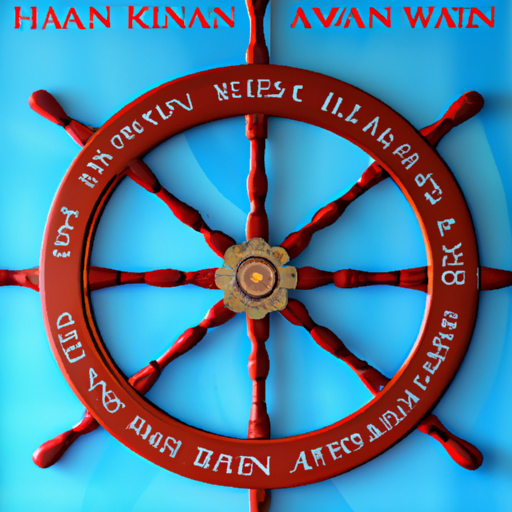
Have you ever wondered about the linguistic abilities of the cruise staff on Asian cruise ships? The language barrier can often be a concern for travelers, but fear not, as most cruise staff on these ships are proficient in multiple languages. From Mandarin and Cantonese to Japanese and Korean, these dedicated crew members are equipped with the linguistic skills to ensure a smooth sailing experience for passengers from different parts of Asia. So, if you’re planning an Asian cruise adventure, rest assured that communication won’t be a problem onboard.
Overview
Role of cruise staff on Asian cruise ships
On Asian cruise ships, the cruise staff plays a crucial role in ensuring a smooth and enjoyable experience for passengers. They are responsible for various tasks, including providing excellent customer service, organizing events and activities, maintaining cleanliness and safety, and assisting passengers with any inquiries or concerns.
The cruise staff serves as the face of the ship, interacting with passengers on a daily basis. They play a vital role in creating a welcoming and friendly atmosphere onboard, catering to the needs of passengers from various cultural backgrounds. To fulfill these responsibilities effectively, it is essential for cruise staff to be proficient in multiple languages, given the diverse group of passengers they encounter.
Commonly Spoken Languages
English
Mandarin
Japanese
Korean
Thai
Filipino
Given the multicultural nature of Asian cruise ships, cruise staff are often required to speak multiple languages. English is a common language spoken by cruise staff since it is widely understood and serves as a means of communication in an international setting. Other commonly spoken languages include Mandarin, Japanese, Korean, Thai, and Filipino, reflecting the diverse mix of nationalities of the passengers onboard.
English Language Proficiency
Importance of English for cruise staff
English language proficiency is of paramount importance for cruise staff on Asian cruise ships. As English is the global language of communication, it acts as a bridge between passengers from different countries and the cruise staff. This enables effective communication, enhances customer service, and ensures that passengers’ needs and preferences are understood and met.
English training for cruise staff
To ensure that cruise staff are proficient in English, many cruise lines provide comprehensive English training programs. These programs focus on improving vocabulary, grammar, pronunciation, and conversational skills. Training may include classroom sessions, interactive exercises, role plays, and language immersion experiences. By investing in English language training, cruise lines aim to equip their staff with the necessary language skills to excel in their roles.
English-speaking countries represented on Asian cruise ships
Asian cruise ships typically employ cruise staff from various English-speaking countries such as the United States, Canada, the United Kingdom, Australia, and New Zealand. Staff from these countries bring their native fluency and understanding of English, providing a valuable resource for effective communication onboard.
Mandarin Language Proficiency
Importance of Mandarin for cruise staff
Mandarin language proficiency is highly sought-after among cruise staff on Asian cruise ships. China’s booming tourism industry has led to a significant increase in the number of Chinese tourists opting for cruises. Being able to speak Mandarin allows cruise staff to better cater to the needs of Chinese passengers, understand their preferences, and provide a personalized experience.
Mandarin training for cruise staff
Recognizing the growing importance of Mandarin, many cruise lines offer specific Mandarin language training programs for their staff. These programs focus on fundamental vocabulary, essential phrases, and cultural nuances. By investing in Mandarin language training, cruise lines aim to create an environment where Chinese passengers feel valued and understood.
Chinese-speaking countries represented on Asian cruise ships
To cater to the increasing number of Chinese passengers, Asian cruise ships typically employ cruise staff from Chinese-speaking countries, including China, Taiwan, and Hong Kong. These staff members bring their linguistic skills and cultural understanding, enabling them to provide a more tailored experience for Chinese passengers.
Japanese Language Proficiency
Importance of Japanese for cruise staff
Japanese language proficiency is valuable for cruise staff on Asian cruise ships due to the significant number of Japanese tourists opting for cruises. Being able to speak Japanese allows the staff to effectively communicate with Japanese passengers, understand their preferences, and provide a high level of customer service.
Japanese training for cruise staff
To enhance their Japanese language skills, many cruise lines provide specific Japanese language training programs for their staff. These programs focus on vocabulary, conversational phrases, and etiquette. By investing in Japanese language training, cruise lines aim to create an environment where Japanese passengers feel appreciated and taken care of.
Japanese-speaking countries represented on Asian cruise ships
Asian cruise ships often employ cruise staff from Japanese-speaking countries such as Japan, ensuring that there are staff members who can fluently communicate with Japanese passengers. These staff members serve as cultural bridges, enhancing the overall experience for Japanese tourists.
Korean Language Proficiency
Importance of Korean for cruise staff
Korean language proficiency is valuable for cruise staff on Asian cruise ships due to the increasing number of Korean tourists opting for cruises. Being able to speak Korean allows the staff to better cater to the needs of Korean passengers, understand their preferences, and provide personalized assistance.
Korean training for cruise staff
To equip their staff with Korean language skills, many cruise lines offer specific Korean language training programs. These programs focus on vocabulary, essential phrases, and cultural nuances. By investing in Korean language training, cruise lines aim to create an environment where Korean passengers feel comfortable and valued.
Korean-speaking countries represented on Asian cruise ships
Asian cruise ships typically employ cruise staff from Korean-speaking countries such as South Korea, ensuring that there is staff available who can effectively communicate with Korean passengers. This enables the staff to provide a seamless and enjoyable cruise experience for Korean tourists.
Thai Language Proficiency
Importance of Thai for cruise staff
Thai language proficiency is valuable for cruise staff on Asian cruise ships due to the popularity of cruises that visit Thai destinations such as Bangkok, Phuket, and Koh Samui. Being able to speak Thai allows the staff to provide knowledgeable guidance, effectively communicate with local service providers, and ensure a smooth experience for passengers during shore excursions.
Thai training for cruise staff
To improve their Thai language skills, cruise lines often provide specific Thai language training programs for their staff. These programs focus on basics such as greetings, essential phrases, and local customs. By investing in Thai language training, cruise lines aim to enhance the overall experience for passengers visiting Thai destinations.
Thai-speaking countries represented on Asian cruise ships
Asian cruise ships typically employ cruise staff from Thai-speaking countries such as Thailand itself. Having staff members who can speak Thai fluently allows for efficient communication with locals and enriches the cultural experience for passengers visiting Thai ports.
Filipino Language Proficiency
Importance of Filipino for cruise staff
Filipino language proficiency is valuable for cruise staff on Asian cruise ships due to the large number of Filipino crew members working onboard these ships. Being able to speak Filipino allows the cruise staff to effectively communicate with their Filipino colleagues, collaborate seamlessly, and provide a supportive working environment.
Filipino training for cruise staff
To equip their staff with Filipino language skills, cruise lines may offer specific Filipino language training programs. These programs focus on vocabulary, common phrases, and cultural nuances. By investing in Filipino language training, cruise lines aim to foster a sense of camaraderie and unity among their diverse staff members.
Filipino-speaking countries represented on Asian cruise ships
Asian cruise ships often have a significant number of Filipino crew members, reflecting the rich Filipino seafaring tradition. These crew members bring their fluency in Filipino, enabling smooth communication and creating a sense of community among staff members.
Other Languages
Additional languages spoken by cruise staff
Besides the aforementioned commonly spoken languages, cruise staff on Asian cruise ships may have proficiency in other languages. This could include languages such as Vietnamese, Bahasa Indonesia, Malay, and Russian, among others. These additional language skills further contribute to the diversity and inclusivity of the cruise staff.
Reasons for diverse language skills
The extensive language skills of cruise staff on Asian cruise ships serve multiple purposes. Firstly, it allows for effective communication with passengers from various linguistic backgrounds, ensuring their needs are understood and addressed. Secondly, it enables cruise staff to assist passengers during shore excursions or visits to local ports, creating a smoother and more enjoyable experience. Finally, diverse language skills contribute to a more inclusive and welcoming environment onboard, showcasing the cultural diversity of both the staff and the passengers.
Benefits of multilingual staff on Asian cruise ships
Having a multilingual cruise staff provides numerous benefits on Asian cruise ships. Passengers feel more comfortable and confident knowing they can communicate with the staff in their native language. It facilitates a higher level of customer service, as staff members are able to fully understand and meet the unique needs of each passenger. Additionally, multilingual staff help bridge cultural gaps, fostering a greater appreciation for different cultures and languages among the passengers. Overall, the presence of multilingual staff enhances the cruise experience, making it more memorable and enjoyable for everyone onboard.
Translation and Interpretation Services
Role of translation and interpretation services on Asian cruise ships
Translation and interpretation services play a crucial role on Asian cruise ships. While cruise staff may be proficient in multiple languages, there may still be instances where language barriers arise, especially with less commonly spoken languages. In such cases, translation and interpretation services provide essential support by ensuring effective communication between passengers and staff. These services help overcome language obstacles, enabling passengers to fully understand onboard announcements, participate in activities, and address any concerns they may have.
Availability of translation services for passengers
Many Asian cruise ships offer translation services for passengers, ensuring that language barriers are minimized. These services may include multilingual signage, printed materials in different languages, audio translations, and access to translation apps or devices. By providing such services, cruise lines demonstrate their commitment to creating an inclusive and welcoming environment for all passengers, regardless of their language proficiency. This accessibility enhances the overall cruise experience, making it more enjoyable and stress-free for everyone onboard.



